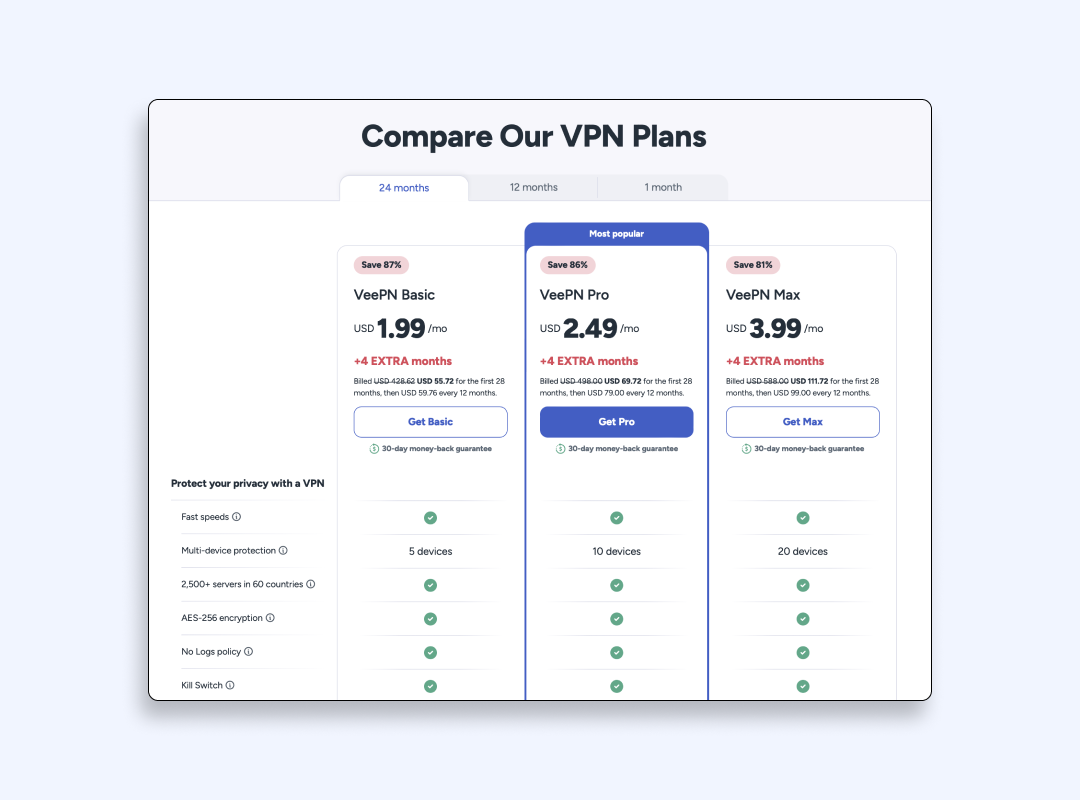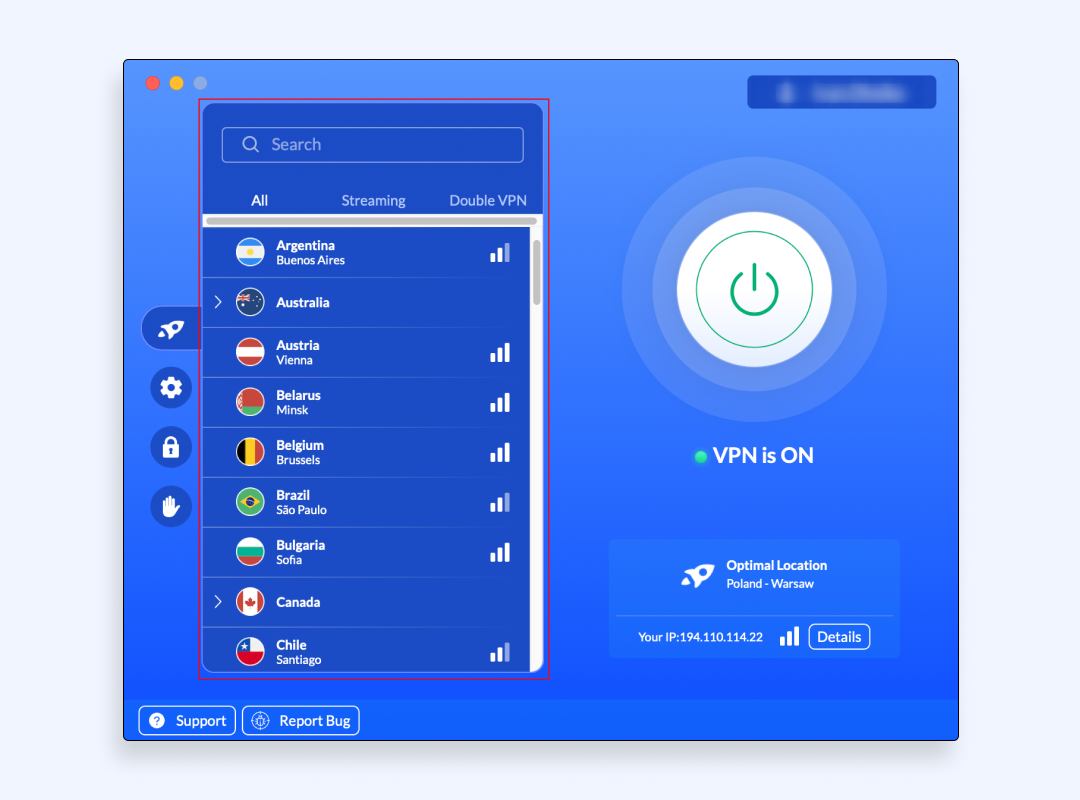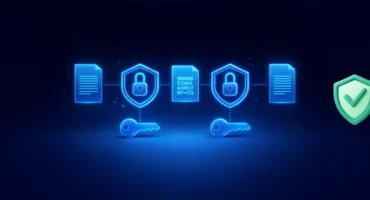Can Password Managers Be Hacked? Understanding Risks and How to Stay Safe
Can password managers be hacked? This is the question on many users’ minds who rely on these tools to protect their digital lives. With data breaches and cyber attacks on the rise, even the most security-conscious are wondering if their password manager is really safe. While password managers are generally safe and secure due to strong encryption and security features, their safety also depends on proper usage and the strength of your master password.
In this article, we’ll look into password manager risks, why choosing a good password manager is key to your online safety, real-world hacking incidents, and provide practical tips to improve your password security, showing how VeePN can become an extra layer of protection.

Why VeePN should be part of your digital safety arsenal
Using a password manager is a great step towards better security, but without a VPN, your credentials can still be exposed during transmission. That is what VeePN can add to your password manager protection:
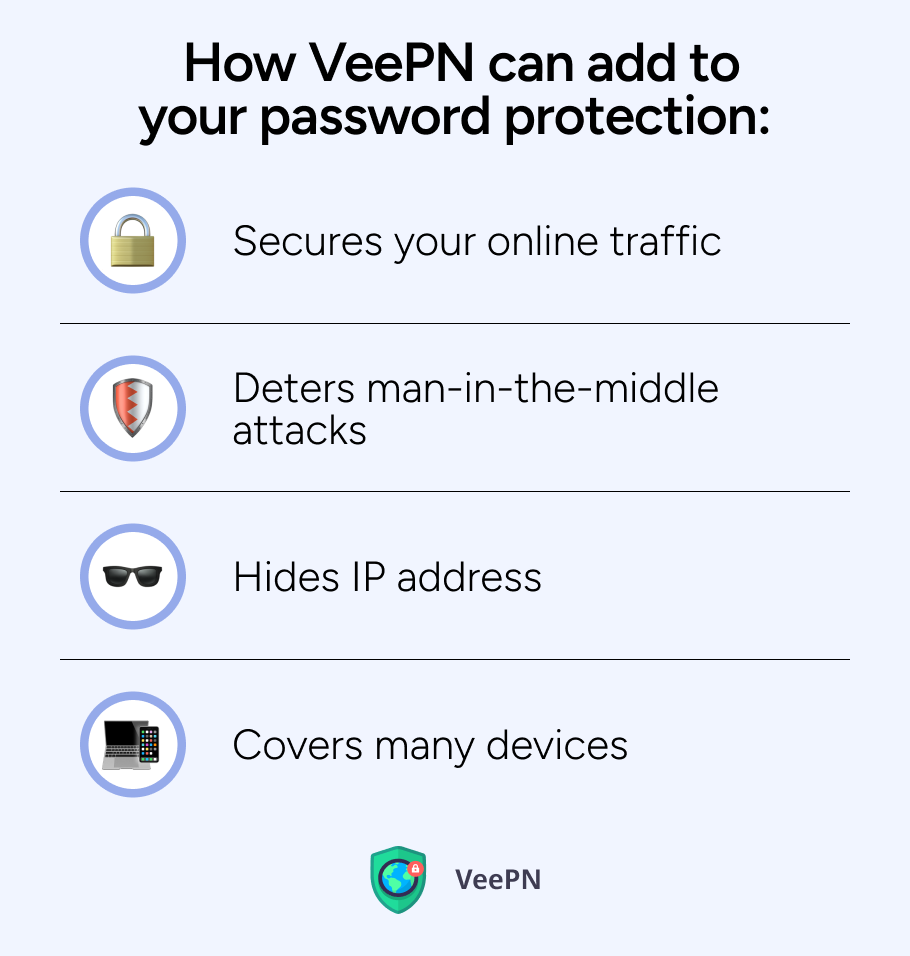
🛡️Secures your online traffic. VeePN will secure your traffic with AES-256 encryption which keeps hackers at bay, particularly on unsecured WiFi networks.
🛡️Deters man-in-the-middle attacks. A VPN puts up a secure tunnel that prevents any unauthorized access to sensitive login sessions.
🛡️Hides IP address. VeePN covers your actual location and Internet activity, making it more difficult to track or identify you.
🛡️Covers many devices. You can cover all your digital footprint, as up to 10 devices can be added under one account.
With VeePN, your password manager will be super-secure. But why do people need password managers in the first place?
Why people use password managers
Password managers have become essential tools for users who seek security and convenience. If you want to be safer online, you need to use a password manager to generate, store and manage unique passwords for every account. They allow you to:
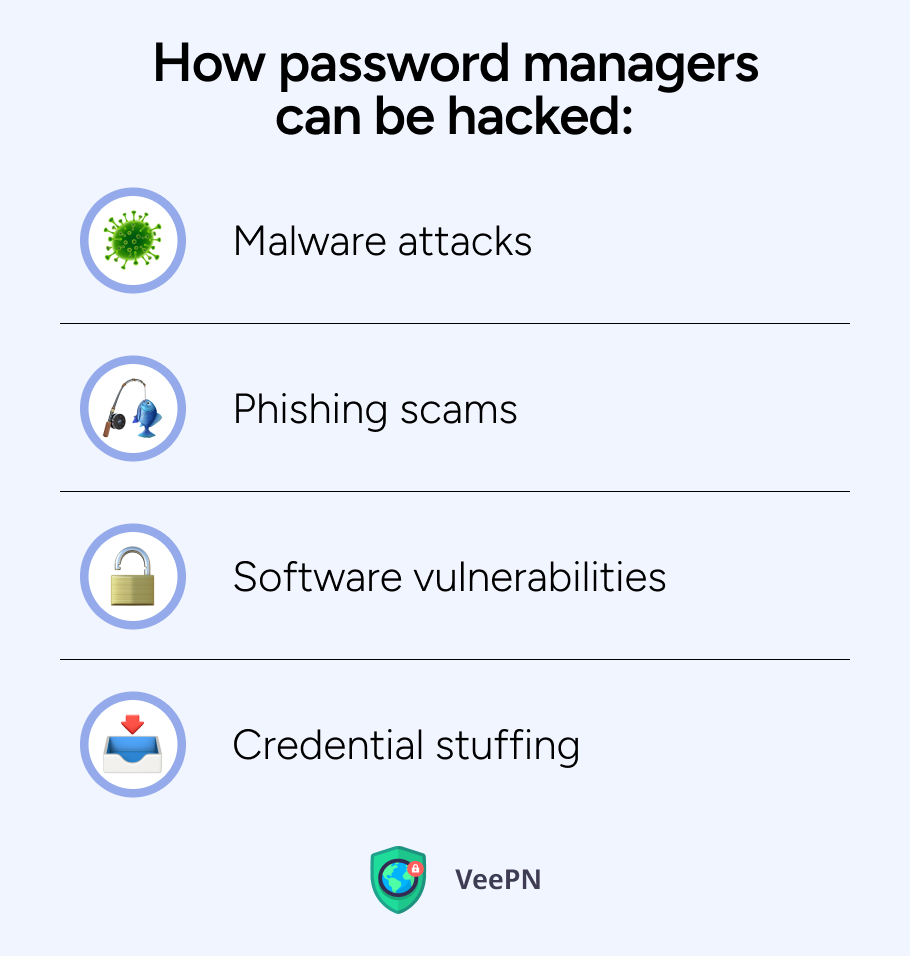
- Store and autofill credentials for countless accounts, making it easier to manage online accounts and protect your information.
- Most password managers have a password generator that creates strong and complex passwords, so your accounts are protected from hacking and credential stuffing.
- Access your vaults across devices via encrypted cloud storage.
- Avoid password reuse or weak passwords.
Password managers also help you import and manage old passwords when switching from other tools or devices. However, there are several risks associated with using password managers, and you have to be aware of them.
Growing concerns: Can password managers be hacked?
Password managers are not fail-safe despite their solid design. As an example, in 2022, LastPass suffered a major security incident in which the encrypted vault data and metadata were stolen.
Password managers are popular targets of attackers who seek to access information about users, which is why they are a preferred attack target. However, in the example above, cybercriminals had an option to not only steal user data, but also to gain access to the fragments of the LastPass source code, which further increased the chances of its further use.
National Institute of Standards & Technology (NIST) is the body that is charged with the responsibility of cataloguing such vulnerabilities and keeping track of such occurrences. The breach demonstrated that even trusted tools could be attacked, although the company had promised users that the encrypted data was safe without the master password.
How password managers can be hacked
Let’s break down the common attack vectors cybercriminals use to exploit password managers:
Malware attacks
Malicious software like StealC and Luca Stealer are designed to extract saved credentials from local storage or during synchronization. These Trojans can be hidden, waiting for you to unlock your vault. You must protect access to your password vault with strong authentication to prevent malware from getting your credentials.
Phishing scams
Attackers may launch phishing campaigns by sending emails or creating fake websites that mimic password manager login pages. These phishing campaigns often use social engineering to trick you into revealing your master password.
Software vulnerabilities
Even reputable services can have security flaws. Bugs in browser extensions, outdated apps or misconfigured permissions can be an entry point for attackers. Passwords written down or stored insecurely can compromise security if found by malicious actors.
Credential stuffing attacks
When you reuse passwords and use the same email and password combinations across different platforms, leaked credentials can be used to try to log in to password managers. In such a way, cybercriminals can get access to all your online profiles, including social media and banking accounts.
Best practices for password manager security
To maximize your security, follow these tips:
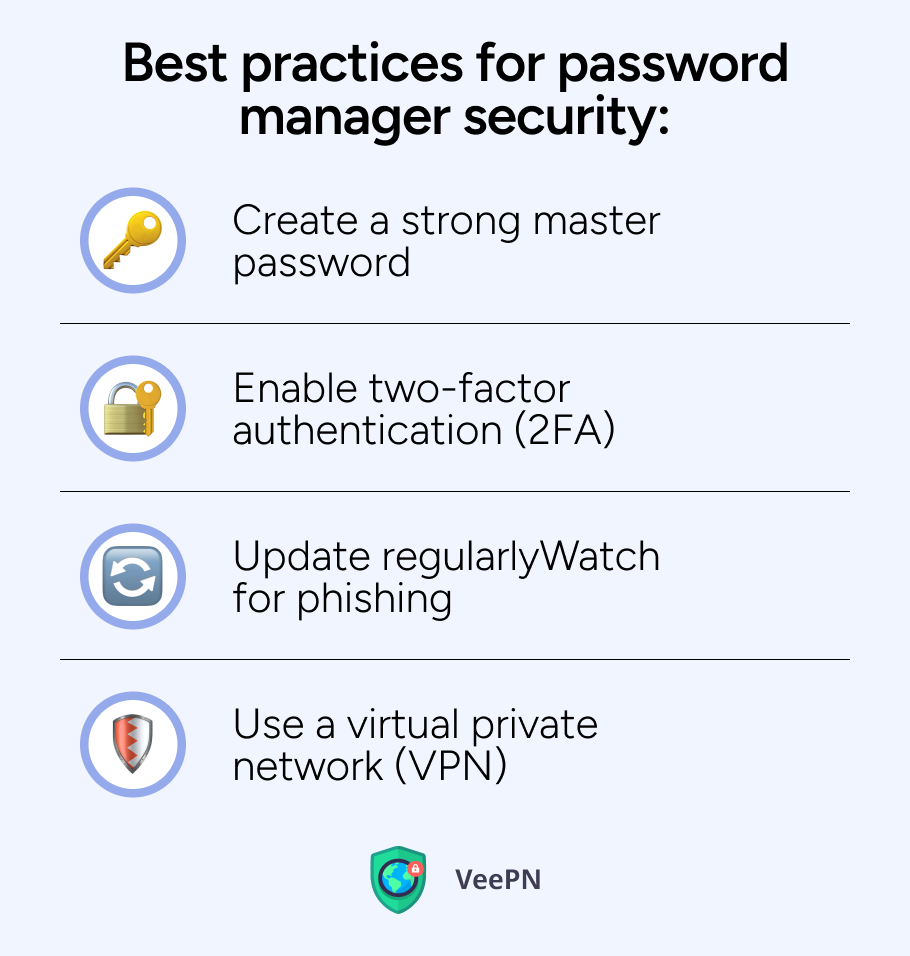
💪Create a strong master password: Use a mix of characters and don’t use personal info.
💪Enable two-factor authentication (2FA): Adds an extra layer of protection by requiring an additional verification step, making it harder for attackers to get in.
💪Update regularly: Always update your password manager and operating system to the latest version.
💪Watch for phishing: Check oddly-looking URLs and never enter credentials on suspicious sites.
💪Use a virtual private network (VPN): A VPN app encrypts your traffic, hiding credentials from interception.
Using VeePN with your password manager: Main steps
To protect your password manager with VeePN, follow these steps:
- Download and install VeePN on your device

- Launch the app and select a secure server location

- Connect to the VPN before opening your password manager
- Enable 2FA in your password manager settings
- Use autofill securely while browsing
FAQ
Password managers are considered secure as they encrypt your passwords in the strongest way possible. However, they are only vulnerable when you enter poor master passwords, fail to use two-factor authentication or fall victim to phishing attacks. You can significantly decrease your risk by selecting a well-established manager and adopting additional protective measures, such as a VeePN.
A password manager keeps your username and password in an encrypted storage that you open using one master password. A username and password can be filled automatically when you open a site or application.
No password manager is 100 percent hack-proof, but some have not been hacked to the extent that user vaults are exposed. Bitwarden and 1Password are two of the rare password managers that have never faced a vault compromise published event. But even they are dependent on your habits and vigilance, as weak master passwords or phishing attacks can still endanger your data.
VeePN is freedom
Download VeePN Client for All Platforms
Enjoy a smooth VPN experience anywhere, anytime. No matter the device you have — phone or laptop, tablet or router — VeePN’s next-gen data protection and ultra-fast speeds will cover all of them.
Download for PC Download for Mac IOS and Android App
IOS and Android App
Want secure browsing while reading this?
See the difference for yourself - Try VeePN PRO for 3-days for $1, no risk, no pressure.
Start My $1 TrialThen VeePN PRO 1-year plan


